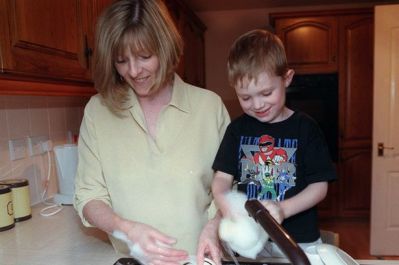Because my mother was working the extra board on the railroad during the 40s, I lived with her parents. My grandparents lived in town, but they owned the land of half a city block. The south half of this block contained the house and a small (eight-tree) apple orchard. The north half of the block was open ground which my grandfather planted to corn and pumpkins.
In the day before roto-tillers and such, he hired a man with a span of horses to plow this small field. Soft spoken and patient, he always had time to talk and explain to a curious girl what he was doing and why.
Although his horses were a matched pair, I noticed that when he gave the signal, the horse on the left always started first and the horse on the right leaned heavily into the harness.
I asked him if the horse on the right was lazy. He just laughed. He told me that in every span of horses or mules, one was the starter and the other was the carrier. The starter lunges forward to help start the load and then walks beside the carrier who is really carrying the bulk of the load.
It is a picture of us walking with Jesus Christ. He is always there, but He waits for us to make the first move. Then He carries the load.
Come unto me, all ye that labour and are heavy laden, and I will give you rest. Take my yoke upon you, and learn of me; for I am meek and lowly in heart: and ye shall find rest unto your souls. For my yoke is easy, and my burden is light. (KJV)
Matthew 11:28-30
All you need do is take the first step. Ask Him into your life and watch His miracle presence make the good better and the bad bearable.


